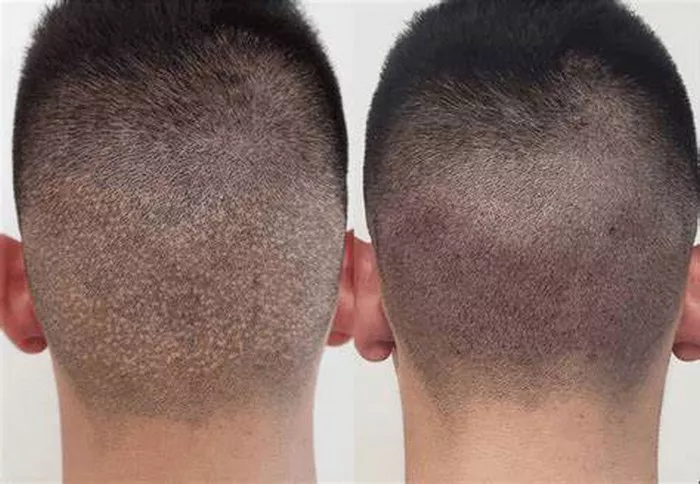Hair loss, particularly around the edges, can be a frustrating experience for many. Whether caused by styling practices, hormonal changes, or medical conditions, thinning edges can affect self-esteem and overall appearance. This article explores various natural methods to promote edge regrowth, providing practical tips and insights for those seeking to restore their hairline.
Understanding Hair Loss in the Edges
Causes of Thinning Edges
Before diving into solutions, it’s essential to understand why edges may thin:
Traction Alopecia: Frequent pulling hairstyles like tight ponytails or braids can weaken hair follicles.
Hormonal Changes: Fluctuations due to pregnancy, menopause, or hormonal imbalances can affect hair growth.
Medical Conditions: Conditions like alopecia areata or thyroid disorders can lead to hair loss.
Poor Nutrition: A lack of essential vitamins and minerals can hinder hair growth.
Signs of Thinning Edges
Identifying thinning edges early can help in taking appropriate action. Look for:
A noticeable widening of the hairline
Short, broken hairs around the edges
Increased hair fall during styling
Natural Remedies for Regrowing Edges
1. Essential Oils
Essential oils can stimulate hair follicles and improve circulation. Here are some effective options:
Castor Oil
Rich in ricinoleic acid, castor oil has anti-inflammatory properties and promotes hair growth.
How to Use:
Massage a small amount into the edges of your scalp for 10-15 minutes.
Leave it on for at least 30 minutes or overnight before washing.
Rosemary Oil
Rosemary oil is known for its ability to stimulate hair growth and improve circulation.
How to Use:
Mix a few drops with a carrier oil like coconut or olive oil.
Apply to the edges and massage gently.
Peppermint Oil
Peppermint oil increases blood flow to the scalp, promoting growth.
How to Use:
Dilute a few drops in a carrier oil and massage into the edges.
Leave on for 30 minutes before rinsing.
2. Natural Masks
Using natural ingredients can nourish the hair and scalp, promoting regrowth.
Aloe Vera
Aloe vera has soothing properties that can promote healthy hair growth.
How to Use:
Apply fresh aloe vera gel directly to the edges.
Leave it on for 30-60 minutes before washing.
Banana and Honey Mask
Bananas are rich in vitamins, and honey has moisturizing properties.
How to Use:
Mash one ripe banana and mix it with one tablespoon of honey.
Apply the mixture to the edges and leave for 30 minutes before rinsing.
Coconut Milk
Coconut milk is packed with nutrients that nourish hair follicles.
How to Use:
Apply fresh coconut milk to the scalp and edges.
Leave it on for an hour before washing.
3. Nutritional Support
A balanced diet plays a crucial role in hair health. Ensure you’re getting enough of the following nutrients:
Protein
Hair is primarily made of protein, so including adequate protein in your diet is essential.
Sources: Eggs, fish, beans, nuts, and lean meats.
Vitamins
Certain vitamins can enhance hair growth:
Vitamin A: Supports sebum production.
Vitamin E: Improves blood circulation.
Biotin: Promotes healthy hair growth.
Sources: Leafy greens, nuts, seeds, and fruits.
Omega-3 Fatty Acids
These fatty acids promote scalp health and nourish hair follicles.
Sources: Fatty fish (like salmon), walnuts, and flaxseeds.
4. Scalp Massage
Regular scalp massages can improve blood flow to the hair follicles, encouraging regrowth.
How to Perform:
Use your fingertips to massage the scalp gently in circular motions for 5-10 minutes daily.
You can add oils for enhanced benefits.
5. Avoiding Damage
Preventing further damage to the edges is crucial for successful regrowth.
Gentle Styling
Avoid tight hairstyles that put stress on the edges. Opt for loose styles, and consider protective hairstyles that don’t pull on the hair.
Heat Protection
Minimize the use of heat-styling tools. When necessary, always use a heat protectant spray.
Regular Trims
Regular trims can help eliminate split ends and promote healthier hair growth.
6. Hydration
Keeping the scalp hydrated is vital for maintaining healthy hair.
Drink Plenty of Water
Adequate hydration is essential for overall hair health.
Humectants
Using hair products with humectants can help retain moisture in the hair and scalp.
Lifestyle Changes for Healthy Hair
1. Stress Management
Chronic stress can lead to hair loss. Incorporating stress-relief techniques can benefit hair health.
Techniques: Meditation, yoga, deep breathing exercises, and regular physical activity.
2. Sleep Quality
Adequate sleep is crucial for overall health, including hair health. Aim for 7-9 hours of quality sleep per night.
When to Seek Professional Help
If natural remedies do not yield results after several months, or if hair loss continues, it may be time to consult a healthcare professional or a dermatologist. They can help identify underlying causes and recommend treatments.
Conclusion
Regrowing edges naturally is achievable with patience and the right approach. By incorporating essential oils, natural masks, nutritional support, and gentle hair care practices, individuals can promote healthy hair growth and restore their confidence. Remember, consistency is key, and understanding your unique hair needs will guide you on your journey to fuller edges.
Related topics:
- Concealing Hair Transplant Scars: Effective Strategies
- Do People Regret Hair Transplants? Unpacking the Truth
- Reclaiming Your Arches: A Full Guide to Restoring Eyebrow Hair


